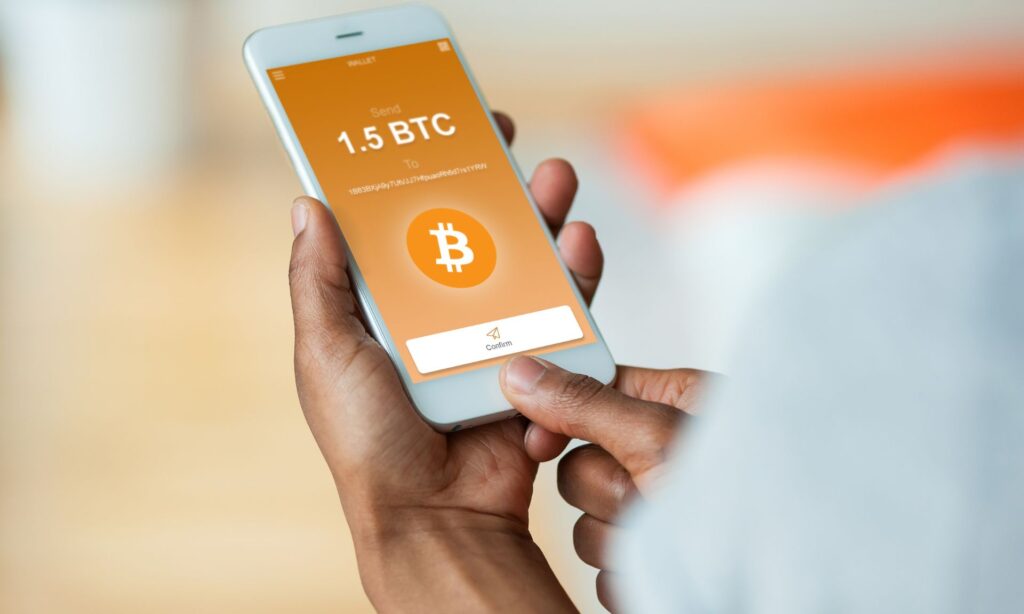In the ever-evolving world of cryptocurrencies, having a secure and user-friendly crypto wallet is essential for managing your digital assets. As we move into 2024, the demand for reliable crypto wallets is expected to soar, with more individuals and businesses embracing the decentralized financial ecosystem. This comprehensive guide will walk you through the process of creating a crypto wallet, exploring different types, essential features, and security considerations.
Understanding Crypto Wallets

A crypto wallet is a digital storage solution that allows you to securely store, send, and receive cryptocurrencies like Bitcoin, Ethereum, and various altcoins. Unlike traditional banking, crypto wallets operate on a decentralized network, providing users with complete control over their digital assets without the need for a third-party intermediary.
Crypto wallets are generally categorized into two main types: hot wallets and cold wallets. Hot wallets, such as mobile, desktop, and web wallets, are connected to the internet, making them more convenient for day-to-day transactions but potentially less secure. On the other hand, cold wallets, like hardware wallets and paper wallets, are offline storage solutions, offering enhanced security but with limited accessibility.
Choosing the Right Crypto Wallet
When selecting a crypto wallet, it’s crucial to consider your specific needs and priorities. Here are some factors to keep in mind:
- Security: Security should be your top priority when dealing with cryptocurrencies. Look for wallets that offer robust security features like two-factor authentication, multi-signature support, and encryption.
- User-friendliness: Opt for a wallet with an intuitive and user-friendly interface, especially if you’re new to the crypto world. A well-designed wallet can make managing your assets a seamless experience.
- Supported cryptocurrencies: Determine the cryptocurrencies you plan to hold and ensure that the wallet you choose supports them. Some wallets are specific to certain cryptocurrencies, while others are multi-currency wallets.
- Compatibility: Consider the devices and operating systems you plan to use with your wallet. Some wallets are exclusively available for desktop or mobile platforms, while others offer cross-platform compatibility.
- Reputation and community support: Research the reputation of the wallet provider and the size of its user community. A reputable provider with an active community can provide better support and timely updates.
READ ALSO: How to Pay With Cryptocurrency: From Wallets to Gift Cards
Popular Crypto Wallet Choices
With numerous options available in the market, choosing the right crypto wallet can be challenging. Here are some popular choices to consider:
- MetaMask: A browser extension and mobile app wallet primarily used for Ethereum-based tokens and decentralized applications (DApps). MetaMask is known for its user-friendly interface and integration with popular DeFi platforms.
- Exodus: A multi-currency desktop wallet that supports over 260 cryptocurrencies. Exodus is renowned for its sleek design and built-in exchange feature, making it ideal for beginners and experienced users alike.
- Trust Wallet: A mobile wallet developed by Binance that supports various cryptocurrencies and blockchain networks. Trust Wallet is known for its intuitive interface and integration with decentralized exchanges (DEXs).
- Ledger: A popular hardware wallet manufacturer offering the Ledger Nano X and Ledger Nano S devices. Ledger wallets are renowned for their robust security features and support for a wide range of cryptocurrencies.
- Trezor: Another leading hardware wallet brand, Trezor offers the Model T and Model One devices. Trezor wallets are known for their advanced security features and user-friendly interface.
Setting Up Your Crypto Wallet
Once you’ve chosen your preferred crypto wallet, it’s time to set it up. The process may vary slightly depending on the wallet type, but generally, it involves the following steps:
- Download and install the wallet software or purchase a hardware wallet device.
- Create a new wallet or restore an existing one using a seed phrase or recovery words.
- Set up additional security features like two-factor authentication or a PIN code.
- Backup your seed phrase or recovery words in a secure location (e.g., a password manager or a physical storage device).
- Start using your wallet by receiving, sending, or purchasing cryptocurrencies.
Security Best Practices
Securing your crypto wallet should be a top priority to protect your digital assets from potential threats like hacking, phishing attacks, or accidental loss. Here are some essential security best practices to follow:
- Use a hardware wallet or a reputable non-custodial software wallet for storing significant amounts of cryptocurrencies.
- Enable two-factor authentication (2FA) or multi-factor authentication (MFA) whenever possible.
- Never share your seed phrase, private keys, or wallet passwords with anyone.
- Keep your wallet software and devices updated with the latest security patches and updates.
- Use a secure and reliable internet connection when accessing your wallet.
- Consider using a dedicated device (e.g., an old laptop or smartphone) solely for managing your crypto wallet.
READ ALSO: Best Crypto Software Wallets for 2024: Secure Your Digital Assets with Ease
Conclusion
As the cryptocurrency ecosystem continues to evolve and gain mainstream adoption, having a secure and user-friendly crypto wallet will become increasingly important. By understanding the different types of wallets, their features, and security considerations, you can make an informed decision and choose the best option to suit your needs.
Remember, maintaining strong security practices, such as enabling two-factor authentication, backing up your seed phrase, and keeping your wallet software and devices updated, is crucial to safeguarding your digital assets. With the right crypto wallet and proper precautions, you can confidently navigate the world of cryptocurrencies and take control of your financial future.
Frequently Asked Questions (FAQs)
Q1. Can I create a crypto wallet for free?
A. Yes, most software wallets like mobile, desktop, and web wallets are available for free. However, hardware wallets require a one-time purchase cost, typically ranging from $50 to $200.
Q2. What is the difference between a hot wallet and a cold wallet?
A. Hot wallets are connected to the internet, making them more convenient for daily transactions but potentially less secure. Cold wallets, like hardware and paper wallets, are offline storage solutions offering enhanced security but limited accessibility.
Q3. Can I recover my crypto wallet if I lose my device or seed phrase?
A. If you have securely backed up your seed phrase or recovery words, you can restore your crypto wallet on a new device or software. Without the seed phrase, recovering your wallet and accessing your funds may be impossible.
Q4. How many cryptocurrencies can a crypto wallet support?
A. Some wallets are specific to certain cryptocurrencies, like Bitcoin or Ethereum, while others are multi-currency wallets that support a wide range of digital assets.
Q5. Are crypto wallets anonymous?
A. Crypto wallets themselves are not anonymous, but they can provide a degree of privacy by not requiring personal information during setup. However, most reputable wallets will require identity verification for compliance with anti-money laundering (AML) and know-your-customer (KYC) regulations.
In another related article, Cryptocurrency Wallets: The Ultimate Guide to Safeguarding Your Digital Assets





